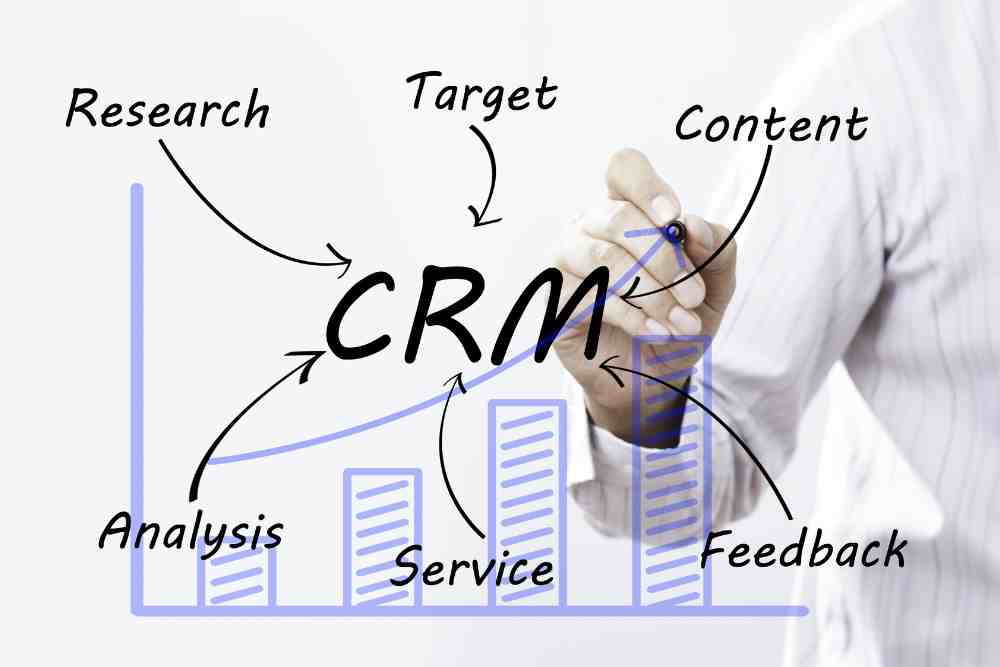Leveraging CRM to Streamline Business Operations

Customer Relationship Management (CRM) systems have become an essential tool for businesses of all sizes and industries. By leveraging CRM, companies can streamline their operations, improve customer satisfaction, and drive growth. In this article, we will explore the benefits of CRM and how it can be effectively used to optimize business processes.
What is CRM?
CRM refers to the practices, strategies, and technologies that companies use to manage and analyze customer interactions and data throughout the customer lifecycle. It involves the use of software systems that centralize customer information, automate sales and marketing processes, and provide valuable insights for decision-making.
CRM systems are designed to help businesses build and maintain strong relationships with their customers by providing a holistic view of each customer’s interactions and preferences. They enable companies to track customer interactions across various touchpoints, such as phone calls, emails, social media, and website visits.
The Benefits of CRM
Implementing a CRM system can bring numerous benefits to a business. Let’s explore some of the key advantages:
1. Enhanced Customer Experience
A CRM system allows businesses to provide personalized and tailored experiences to their customers. By having access to a customer’s history, preferences, and purchase behavior, companies can anticipate their needs and deliver relevant offers and recommendations. This level of personalization enhances customer satisfaction and loyalty.
For example, a clothing retailer can use CRM data to send personalized emails to customers, recommending products based on their previous purchases or browsing history. This targeted approach increases the chances of conversion and improves the overall customer experience.
2. Improved Sales and Marketing Efficiency
CRM systems automate and streamline sales and marketing processes, enabling teams to work more efficiently. By centralizing customer data, sales representatives can easily access information about leads and customers, track their interactions, and prioritize their efforts.
For instance, a salesperson can quickly identify which leads are most likely to convert based on their engagement with previous marketing campaigns. This allows them to focus their efforts on high-potential leads, resulting in higher conversion rates and increased revenue.
3. Better Collaboration and Communication
CRM systems facilitate collaboration and communication among team members. By having a centralized platform to store and share customer information, employees from different departments can work together seamlessly.
For example, the sales team can provide feedback to the marketing team on the quality of leads generated, helping them refine their targeting strategies. This collaboration ensures that marketing efforts are aligned with sales objectives, leading to more effective campaigns and higher ROI.
4. Data-Driven Decision Making
CRM systems provide valuable insights and analytics that can inform strategic decision-making. By analyzing customer data, businesses can identify trends, preferences, and opportunities for growth.
For instance, a CRM system can generate reports on customer demographics, purchase patterns, and customer lifetime value. This information can help businesses identify their most profitable customer segments and tailor their marketing strategies accordingly.
Case Study: How Company X Streamlined Operations with CRM
Company X, a software development firm, was facing challenges in managing their sales pipeline and customer relationships. They had a fragmented system with customer data spread across different spreadsheets and email threads, making it difficult to track interactions and prioritize leads.
After implementing a CRM system, Company X experienced significant improvements in their operations:
- Centralized Customer Data: The CRM system allowed Company X to consolidate all customer information in one place, providing a comprehensive view of each customer’s history and preferences.
- Streamlined Sales Process: The sales team could easily track leads, assign tasks, and monitor progress through the CRM system. This streamlined their sales process and improved efficiency.
- Improved Customer Service: With access to customer data, support representatives could quickly address customer inquiries and provide personalized assistance, resulting in higher customer satisfaction.
- Enhanced Reporting and Analytics: The CRM system provided Company X with valuable insights on their sales performance, customer behavior, and revenue trends. This data-driven approach helped them make informed decisions and optimize their strategies.
Overall, the implementation of CRM transformed Company X’s operations, leading to increased sales, improved customer satisfaction, and better decision-making.
How to Effectively Leverage CRM for Business Operations
While implementing a CRM system is a crucial step, it is equally important to leverage it effectively to streamline business operations. Here are some best practices:
1. Define Clear Objectives
Before implementing a CRM system, clearly define your objectives and what you aim to achieve. Whether it’s improving customer service, increasing sales, or optimizing marketing campaigns, having a clear vision will guide your CRM strategy.
2. Align CRM with Business Processes
Ensure that your CRM system aligns with your existing business processes. Customize the system to match your workflows and integrate it with other tools and software you use. This integration will enable seamless data flow and avoid duplication of efforts.
3. Train and Educate Employees
Provide comprehensive training to your employees on how to effectively use the CRM system. This will ensure that they understand its features and benefits and can leverage it to its full potential. Regularly update employees on new features and functionalities to keep them engaged.
4. Regularly Update and Cleanse Data
Regularly update and cleanse your CRM data to ensure its accuracy and relevance. Remove duplicate or outdated records and verify the integrity of the data. This will help maintain the system’s effectiveness and prevent any errors or inconsistencies.
5. Continuously Monitor and Analyze Data
Regularly monitor and analyze the data generated by your CRM system. Look for patterns, trends, and opportunities for improvement. Use the insights to refine your strategies, optimize processes, and drive growth.
CRM systems are powerful tools that can streamline business operations and drive growth. By leveraging CRM, businesses can enhance the customer experience, improve sales and marketing efficiency, foster collaboration, and make data-driven decisions. Implementing a CRM system and following best practices can transform a company’s operations, as demonstrated by the case study of Company X. To streamline your business operations and unlock its full potential, consider implementing a CRM system like SaasExpert.ca – Your All-In-One Sales and Marketing Platform for small businesses, agency owners, and marketers.
Learn more about “Examining Strategies for Streamlining Enterprise Workflows with CRM” right here.
Frequently asked questions about Leveraging CRM to Streamline Business Operations.

🎉 How Can CRM Help Streamline Business Operations?
Hey there, savvy business explorer! 🤗 If you’re looking to make your operations run like a well-oiled machine, CRM is your go-to pit crew. 🏎️
Task Automation: From sending out emails to managing leads, automate the repetitive so you can focus on the creative and strategic. 🤖
Real-Time Analytics: Get instant insights into customer behavior, sales performance, and more, all in one place. 📊
Better Communication: Your team can log every interaction, meeting, or call, so everyone’s always on the same page. 📞
And that’s just scratching the surface! CRM isn’t just a tool; it’s a holistic solution that can transform your business operations. 🌟
📌 What Are the Key Features in CRM for Streamlining Operations?
Oh, you’re getting into the good stuff! CRM platforms offer a buffet of features, and they’re all delicious for your business. 😋
Contact Management: Store and manage all customer data and interactions in one centralized hub. 🗂️
Sales Funnel Management: Keep tabs on where each lead or deal stands. No more guessing! 🎯
Automated Marketing: Run targeted campaigns based on specific customer behaviors and traits. 💌
Inventory Management: If you’re in retail, some CRMs offer features to track products, suppliers, and inventory levels. 📦
Pick and choose what best suits your business needs. You can always add more as you go along! 🌱
💼 How Can Small Businesses Benefit from Streamlining Operations with CRM?
You bet your boots! Small businesses can see HUGE benefits from CRM, perhaps even more so than big companies. 🚀
Cost-Effective: While there’s an initial investment, the automation and efficiency gains quickly pay for themselves. 💰
Scalability: As you grow, your CRM grows with you. It’s a long-term relationship! 🌱
Customer Retention: In a small business, every customer is gold. CRM helps you keep ’em happy and coming back for more. 😊
Don’t think of CRM as a ‘big business’ tool; it’s an ‘anyone who wants to succeed in business’ tool. 🌟
📈 How Can I Measure the Effectiveness of Streamlining Operations Through CRM?
Excellent question! You can’t manage what you can’t measure, right? 📏
ROI Tracking: Compare revenue before and after CRM implementation. If it’s going up, you’re on the right track! 📈
Customer Satisfaction Surveys: Use your CRM to automatically send these out and measure the responses. 📋
Employee Productivity: Are tasks getting done faster? Are there fewer errors? Your CRM data can tell you. 👩💼
Monitoring effectiveness isn’t a one-and-done deal. Keep an eye on these metrics to continually tweak and improve. 👀
🤩 What Can I Expect After Implementing CRM for Streamlined Operations?
The sky’s the limit! 🌈 After overcoming the initial learning curve, you can expect:
Time Savings: No more manual data entry or hunting for lost information. 🕒
Increased Sales: With better lead management and customer insights, expect to close more deals. 💲
Stellar Customer Service: With all the info you need at your fingertips, resolving customer issues becomes a breeze. 💨
And those are just the immediate benefits. Over time, the positive impact on your business can be revolutionary! 🎉
So, are you ready to turn your business operations from a horse-drawn carriage into a Ferrari? Because that’s what leveraging CRM effectively can do for you. 🏎️💨
- crm
- customer relationship management
- Leveraging CRM to Streamline Business Operations
- What is CRM Software?






